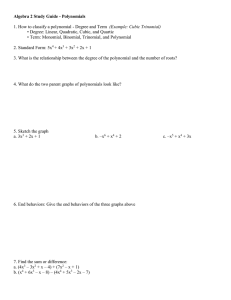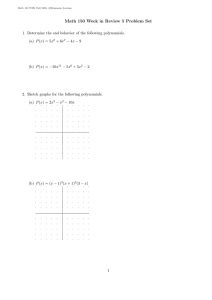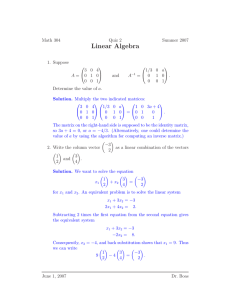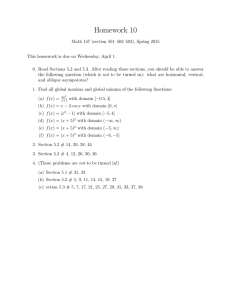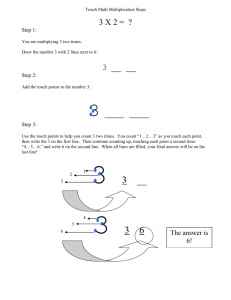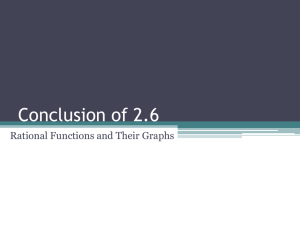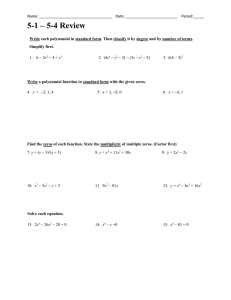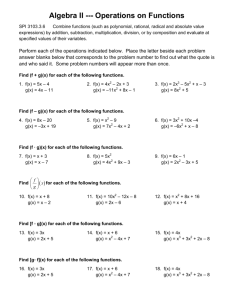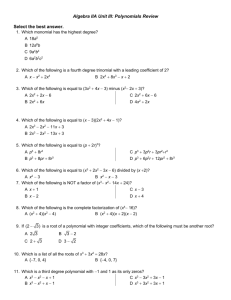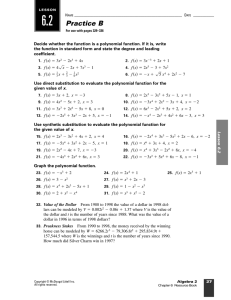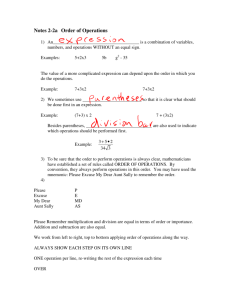Document 10504145
advertisement
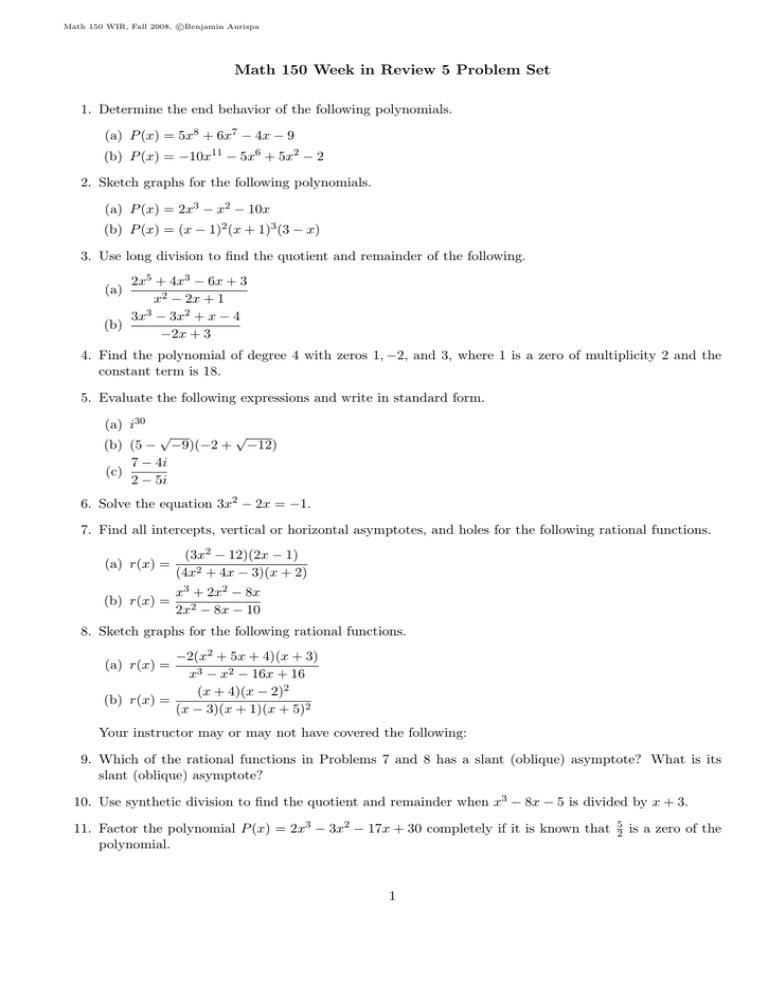
c Math 150 WIR, Fall 2008, Benjamin Aurispa Math 150 Week in Review 5 Problem Set 1. Determine the end behavior of the following polynomials. (a) P (x) = 5x8 + 6x7 − 4x − 9 (b) P (x) = −10x11 − 5x6 + 5x2 − 2 2. Sketch graphs for the following polynomials. (a) P (x) = 2x3 − x2 − 10x (b) P (x) = (x − 1)2 (x + 1)3 (3 − x) 3. Use long division to find the quotient and remainder of the following. 2x5 + 4x3 − 6x + 3 x2 − 2x + 1 3 3x − 3x2 + x − 4 (b) −2x + 3 (a) 4. Find the polynomial of degree 4 with zeros 1, −2, and 3, where 1 is a zero of multiplicity 2 and the constant term is 18. 5. Evaluate the following expressions and write in standard form. (a) i30 √ √ (b) (5 − −9)(−2 + −12) 7 − 4i (c) 2 − 5i 6. Solve the equation 3x2 − 2x = −1. 7. Find all intercepts, vertical or horizontal asymptotes, and holes for the following rational functions. (a) r(x) = (3x2 − 12)(2x − 1) (4x2 + 4x − 3)(x + 2) (b) r(x) = x3 + 2x2 − 8x 2x2 − 8x − 10 8. Sketch graphs for the following rational functions. −2(x2 + 5x + 4)(x + 3) x3 − x2 − 16x + 16 (x + 4)(x − 2)2 (b) r(x) = (x − 3)(x + 1)(x + 5)2 (a) r(x) = Your instructor may or may not have covered the following: 9. Which of the rational functions in Problems 7 and 8 has a slant (oblique) asymptote? What is its slant (oblique) asymptote? 10. Use synthetic division to find the quotient and remainder when x3 − 8x − 5 is divided by x + 3. 11. Factor the polynomial P (x) = 2x3 − 3x2 − 17x + 30 completely if it is known that polynomial. 1 5 2 is a zero of the
